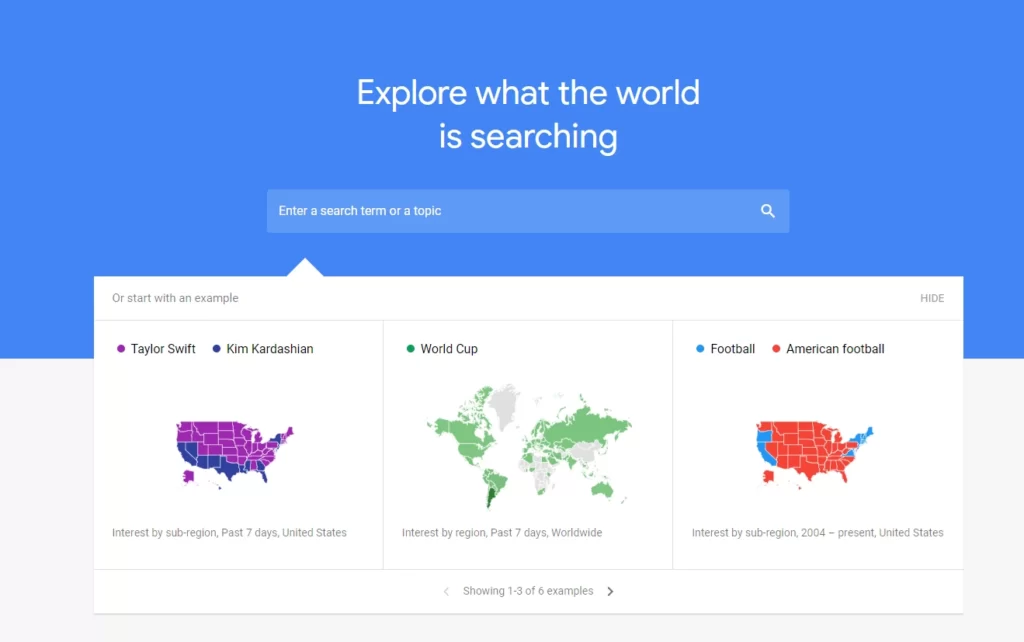Get Awesome Keywords for Your Niche Website Without Wasting Your Time

Are you looking for keywords for your niche website and it’s been a couple of days? Weeks? Months?
Well, you’re not alone, niche website owners depend on unique keywords to get their niche websites in front of their target audience. The actual keyword research is a bit different from something like a YouTube channel, blog, or e-commerce store.
Keywords have to be (in most cases, not all) long tail, and extremely specific. Because of the nature of niche website keywords, research tends to take a bit more time. Using tools like Google trends, a SaaS, or even looking on Reddit and other social media platforms.
Niche keywords: The keywords for niche websites
The nature of keywords changes depending on what you need them for. The days of using a single keyword to rank SERPs is long gone for the majority of website owners. Niche keywords are keywords that are long tail in nature and extremely specific.
Here are some examples:
- Non-toxic cleaning chemicals for renters
- Manuel drives sports cars for gearheads in Florida
- Neon dog leashes for pitbull owners
These examples are specific and look like what someone would type in a search bar. That’s the whole point with keywords in 2023—it’s not about stuffing or single keywords, it’s about searcher intent.
What would gearheads in Florida be searching for? How would they type it? What would make them click on your blog, look at your website, or browse your store? These are some things to keep in mind when conducting research.
Researching keywords with tools like Google Trends or SaaS

You’re going to need tools for a couple of good reasons. First, trying to guess long-tail keywords without data isn’t a good idea. Even if that data is looking up posts on Reddit with really good engagement and getting some ideas off of that.
Google Trends
Google Trends is a decent, free, limited, SEO tool for looking up how well a keyword or long tail keyword is trending over a set period. For example, you can look up “digital nomads in Thailand” and get a data report of how hot that long-tail keyword is.
Values are given from 0 to 100 with 100 being red hot and 0 being cold. You can also look up regional data and some other things that could be useful. Google trends aren’t like full-suite SaaS, so don’t depend on it too much.
SaaS: Keep track of those niche keywords and track performance
A software-as-a-service (SaaS) tool is going to be your best bet for gathering data on keywords, saving it, tracking it, etc. The features vary from SaaS to SaaS but they do share some basic functions. Things like looking up keyword volume, some sort of competitive score (paid or free), a keyword suggestion feature, and maybe a feature to analyze keywords on a website.
A SaaS also lets you consolidate a lot of work that goes into a niche website like content creation, content management, time tracking your content creation team, etc. Unlike a free tool, you’ll also have more keyword searches per day. A lot of free SEO tools online only let you search for keywords a certain amount of times per day.
What should you be looking for when you conduct keyword research?
You want to keep an eye out for metrics like relevance, google search volume, and the competitive score of the keywords that you’re looking at. Make a list of niche keywords that you think would perform well and work from there. Trim that list of niche keywords as needed.
Your keyword list needs to be specific to you, your niche website, and your business. If it makes sense to use a certain long tail keyword, then use it. That’s what makes using niche keywords a bit tricky. A keyword might be an awesome fit even if the metrics would show otherwise.
Get keywords for your niche website from social media platforms
Platforms like Reddit, Facebook, Instagram, etc are great because your target audience will tell you what they’re looking for, how they look for it, and what they type when doing a search. The typical person spends about 3 hours per day on social media. Multiple that by days in a year and the size of your target audience and that’s a lot of data.
If you want to know your target audience frontwards and backwards, then Facebook is the place to go. It’s also a great place to start if you don’t know what you’re doing with social media keyword research.
You can use Facebook’s ad targeting options to get a sneak peek into the details of your target audience. You can also look up hashtags on Facebook, topics, and pages that are popular in your niche. All of these areas of Facebook are rich with keyword data.
If you want to know how your target audience talks about certain topics, then Reddit is perfect. You should be able to find a subreddit that relates to your niche and that’s when the real work starts. Redditors will drop clues as to what they’re looking for in their posts. Fire up a Google doc, or that SaaS tool that you should be using, and start listing possible keywords.
Now that you have your niche keywords does that mean it’s over?
Nope, absolutely not. Niche keywords aren’t set in stone and are subject to change in popularity, difficulty, volume, etc. The research will be ongoing and that’s all going to depend on your niche. Some niches tend to involve a lot of change in short periods of time so you have to be a bit proactive.
Niches like gaming for example could have long tail keywords changing on a monthly basis based on new releases or certain events. Since you know how to do niche keyword research then this isn’t going to be a problem. Just remember to use the proper tools, tailor your niche keywords to you and your site, and make sure to check social media platforms for keyword ideas.

